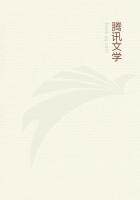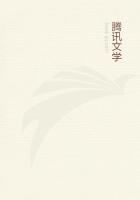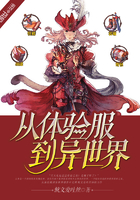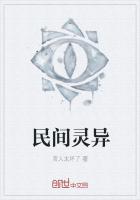[123] i.e.'benefits';also the name of Mohammed's Mu'ezzin,or crier to prayer,who is buried outside the Jabiah gate of Damascus. Hence amongst Moslems,Abyssinians were preferred as mosquecriers in the early ages of AlIslam. Egypt chose blind men because they were abundant and cheap;moreover they cannot take note of what is doing on the adjoining roof terraces where women and children love to pass the cool hours that begin and end the day. Stories are told of men who counterfeited blindness for years in order to keep the employment. In Moslem cities the stranger required to be careful how he appeared at a window or on the gallery of a minaret: the people hate to be overlooked and the whizzing of a bullet was the warning to be off. (Pilgrimage iii. 185.)
[124] His instinct probably told him that this opponent was a low fellow but such insults are common when'renowning it.'
[125] Arab.'Dare''or'Dira','a habergeon,a coat of ring mail,sometimes worn in pairs. During the wretched'Sudan'
campaigns much ***** astonishment was expressed by the English Press to hear of warriors armed capapie in this armour like medieval knights. They did not know that every great tribe has preserved,possibly from Crusading times,a number of hauberks,even to hundreds. I have heard of only one English traveller who had a mail jacket made by Wilkinson of Pall Mall,imitating in this point Napoleon III. And (according to the Bankerpoet,Rogers) the Duke of Wellington. That of Napoleon is said to have been made of platinumwire,the work of a Pole who received his money and an order to quit Paris. The late Sir Robert Clifton (they say) tried its value with a Colt after placing it upon one of his coatmodels or mannequins. It is easy to make these hauberks arrowproof or swordproof,even bulletproof if Arab gunpowder be used: but against a modern riflecone they are worse than worthless as the fragments would be carried into the wound.
The British serjeant was right in saying that he would prefer to enter battle in his shirt: and he might even doff that to advantage and return to the primitive custom of mangymnomachy.
[126] Arab.'Jamal'(by Badawin pronounced'Gamal'like the Hebrew) is the generic term for'Camel'through the Gr.:
'Ibl'is also the camelspecies but not so commonly used.'Hajin'is the dromedary (in Egypt,'Dalul'in Arabia),not the one
humped camel of the zoologist (C. dromedarius) as opposed to the twohumped (C. Bactrianus),but a running i.e. a riding camel.
The feminine is Nakah for like mules females are preferred.
'Bakr'(masc.) and'Bakrah'(fem.) are camelcolts. There are hosts of special names besides those which are general. Mr.
Censor is singular when he states (p.40)'the male (of the camel)is much the safer animal to choose ;'and the custom of t e universal Ease disproves his assertion. Mr. McCoan ('Egypt as it is') tells his readers that the Egyptian camel has two humps,in fact,he describes the camel as it is not.
[127] So,in the Romance of Dalhamah (Zat alHimmah,the heroine the hero AlGundubah ('one locustman') smites off the head of his mother's servile murderer and cries,I have taken my bloodrevenge upon this traitor slave''(Lane,M. E. chaps. xx iii.)
[128] This gathering all the persons upon the stage before the curtain drops is highly artistic and improbable.
[129] He ought to have said his dawn prayers.
[130] Here begins what I hold to be the oldest subject matter in The Nights,the apologues or fables proper;but I reserve further remarks for the Terminal Essay. Lane has most objectionably thrown this and sundry of the following stories into a note (vol. ii.,pp. 5369).
[131] In beast stories generally when man appears he shows to disadvantage.
[132] Shakespeare's'stone bow'not Lane's'crossbow'(ii.53).
[133] The goad still used by the rascally Egyptian donkeyboy is a sharp nail at the end of a stick;and claims the special attention of societies for the protection of animals.
[134]'The most ungrateful of all voices surely is the voice of asses'(Koran xxxi. 18);and hence the'braying of hell'
(Koran Ixvii.7). The vulgar still believe that the donkey brays when seeing the Devil.'The last animal which entered the Ark with Noah was the Ass to whose tail Iblis was clinging. At the threshold the ass seemed troubled and could enter no further when Noah said to him:'Fie upon thee! come in.'But as the ass was still troubled and did not advance Noah cried:'Come in,though the Devil be with thee!',so the ass entered and with him Iblis.
Thereupon Noah asked:'O enemy of Allah who brought thee into the Ark ?',and Iblis answered:'Thou art the man,for thou saidest to the ass,'come in though the Devil be with thee!'
(Kitab alUnwan fi Makaid alNiswan quoted by Lane ii. 54).
[135] Arab.'Rihl,'a wooden saddle stuffed with straw and matting. In Europe the ass might complain that his latter end is the sausage. In England they say no man sees a dead donkey: I have seen dozens and,unfortunately,my own.
[136] The English reader will not forget Sterne's old mare.
Even AlHariri,the prince of Arab rhetoricians,does not distain to use'pepedit,'the effect being put for the causeterror. But Mr. Preston (p. 285) and polite men translate by'fled in haste'the Arabic farted for fear.'
[137] This is one of the lucky signs and adds to the value of the beast. There are some fifty of these marks,some of them (like a spiral of hair in the breast which denotes that the rider is a cuckold) so illomened that the animal can be bought for almost nothing. Of course great attention is paid to colours,the best being the dark rich bay ('red'of Arabs) with black points,or the fleabitten grey (termed Azrak=blue or Akhzar=green) which whitens with age. The worst are dun,cream coloured,piebald and black,which last are very rare. Yet according to the Mishkat al Masabih (Lane 2,54) Mohammed said,'The best horses are black (dark brown?) with white blazes (Arab.'Ghurrah') and upper lips;

